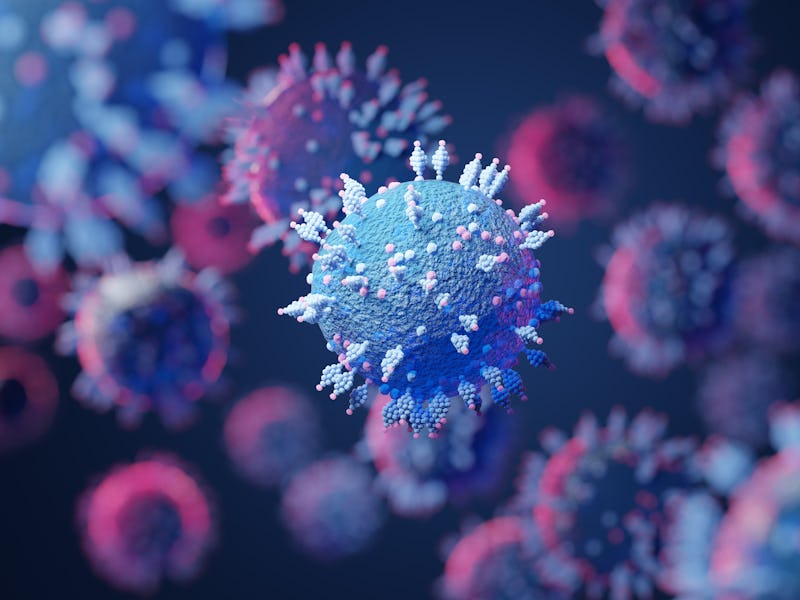BA.2 is quickly becoming the dominant Covid-19 variant in the U.S. — should we be worried?
Everything you need to know about this Omicron subvariant.

Say it with me: The pandemic isn’t over. Yes, depending on your age and the state of your immune system, you may be living your best almost-pre-2020 life, but we are still in a pandemic. The latest variant to come out of Omicron, which reared its head in late December of 2021, is BA.2.
This type might seem different because it’s not named for a Greek letter, but it’s actually just a subvariant of the Omicron variant. So, it’s a kind of Omicron with a few differences. But basically, it’s not worth worrying about any more than previous Omicron variants, as long as you keep taking precautions such as getting vaccinated and keeping up with boosters, and wearing masks. Here’s what you need to know about BA.2.
What is the BA.2 variant?
BA.2 is a genetically distinct subvariant of the COVID variant Omicron. The most common Omicron variants right now are known as BA.1 and BA.2.
According to the Centers for Disease Control (C.D.C.), BA.2 makes up more than half of all reported Covid cases in the U.S. as of March 26. Though, the subvariant is more prevalent in some areas, such as the Northeast and California, than in others. At this point, two other Omicron variants that are very similar to BA.1 account for all other confirmed Covid cases, the data shows.
Gene mutations distinguish BA.2. SARS-CoV-2 cells brandish a signature spike protein that allows them to hijack healthy cells. BA.2 is unique because it has eight mutations in the gene for these spike proteins. BA.1, and previous Covid variants, lack these mutations. This is normal and to be expected. Gene mutations and variants are expected in any virus; SARS-CoV-2 is no different.
Is BA.2 more contagious and severe than other variants?
In a statement on BA.2, the World Health Organization (W.H.O.) said that this subvariant appears “inherently more transmissible than BA.1.” However, this gap is not as big as the one seen between BA.1 and the Delta variant; it seems BA.1 is much more contagious than Delta, but BA.2 is only somewhat more contagious than BA.1.
For reference, the original Omicron variant (BA.1) was found to be two to three times as transmissible as the Delta variant, which plagued last summer. One study from the pre-print server medRxiv says that BA.2 can “alarmingly” reinfect patients originally infected by BA.1. The W.H.O. cites data that, on the other hand, those who had been infected by BA.1 have some protection against BA.2.
However, neither BA.1 nor BA.2 causes any more severe illness. Vaccines have proven effective against all variants.
Do the vaccines still work?
Yes, the vaccines have been working and still work, even as new variants trot out. This is in part most likely how you’ve been living a relatively pre-pandemic life without getting seriously sick from Covid (i.e., hospitalized, put on a ventilator). As of now, one does not need an Omicron-specific vaccine, nor a BA.2-specific gene.
Should I get another booster?
The Food and Drug Administration approved a second booster shot of either the Moderna or Pfizer-BioNTech vaccine for people over 50 and those who are immunocompromised. The C.D.C. endorses it. To keep track of the numbers, this is the second booster shot, and (depending on whether you got Pfizer/Moderna or Johnson & Johnson, plus the first booster shot) your third or fourth needle stick overall.
A wealth of research continues to show that vaccines effectively protect people from contracting the illness in the first place, and from severe symptoms if they do contract it. As we head into our second Hot Vax Summer, opting to get boosted as soon as it’s available to you will continue to protect you and those around you against BA.2 and future variants.